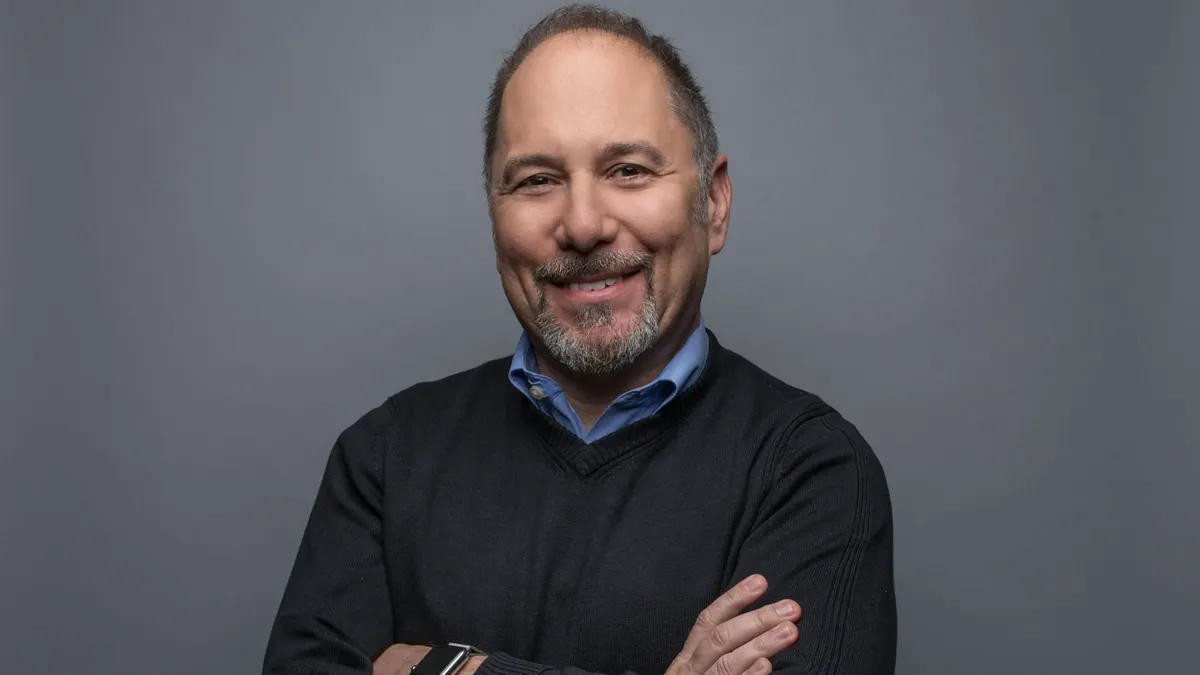Dive Brief:
- David Altshuler, the renowned geneticist who’s helped shape Vertex Pharmaceuticals’ research strategy over the last decade, will step down next year, the company said Monday.
- Alongside its quarterly earnings report, Vertex said Altshuler, the company’s chief scientific officer, will retire on Aug. 1, 2026 as part of a “planned transition.” Mark Bunnage, Vertex’s senior vice president of global research, will assume Altshuler’s role on Feb. 1. He’s worked alongside Altshuler since 2016 and has run discovery research at Vertex since March 2024, the company said.
- Altshuler was named to Vertex’s board of directors in 2012 and officially hired to lead its internal and external research efforts three years later. Since then, the company has branched out from its core cystic fibrosis business and brought to market the first CRISPR gene editing therapy as well as a new kind of pain medicine. “I would like to express my deep gratitude to David for his exceptional scientific vision and patient impact,” CEO Reshma Kewalrami said in a statement.
Dive Insight:
When Altshuler joined Vertex in 2015, he stepped into a company still scarred by a near-catastrophic setback.
While Vertex had a pair of fast-selling cystic fibrosis drugs at the time, it was only a few years removed from the collapse of a once-budding hepatitis C business. Company executives attributed the business’ fall to underestimating the competition and not diversifying quickly enough. They vowed to plan better in the future.
Altshuler was tasked with leading that plan. A founding member of the Broad Institute of Harvard and MIT and leader of several important genetic research studies, Altshuler sought to work on conditions caused by easily identifiable genetic mutations. The idea was to do so within certain “specialty diseases” — typically rare disorders for which medicines can be sold at high prices and with a small sales force. Vertex would iteratively test several similar drugs for these conditions, hoping to find medicines that stand out and then improve upon them.
“Disproportionate value is created when you actually open a disease,” Altshuler said in an interview in 2021, contrasting the company’s approach with the more typical strategy of pursuing many programs within a broad therapeutic area.
Vertex’s strategy drew skepticism from Wall Street investors over the years. But it cemented a cystic fibrosis business that’s produced five drugs and withstood multiple challenges. It also saw Vertex branch out into other areas. A partnership with CRISPR Therapeutics yielded the gene-editing blood disease drug Casgevy, which was approved by regulators in 2023. Long-running pain research led to the clearance of Journavx, an alternative to opioids, in January. Vertex’s market value has more tripled since Altshuler came aboard.
Yet it’s still not clear whether Vertex has found a second drug franchise. Casgevy’s launch is going slow, and Vertex’s pain medications may not become the multibillion-dollar business it envisioned. The company has shelved multiple attempts at drugs for the rare disease alpha-1 antitrypsin deficiency, as well as one of two diabetes cell therapy programs in clinical development. A yearslong collaboration with Moderna hasn’t yet borne fruit.
Vertex is progressing two programs for two types of kidney conditions through late-stage testing, one of which was acquired in a nearly $5 billion deal last year. Another diabetes cell therapy could be submitted to regulators in 2026, and earlier research in a type of muscular dystrophy as well as a different kidney disease are ongoing.
Still, “one of the main questions for the stock is ‘what’s the next [cystic fibrosis]?” and it’s unclear whether the company’s current pipeline is aimed at “market opportunities that are meaningful enough to be narrative changing,” Stifel analyst Paul Matteis wrote in a Monday note to clients.















